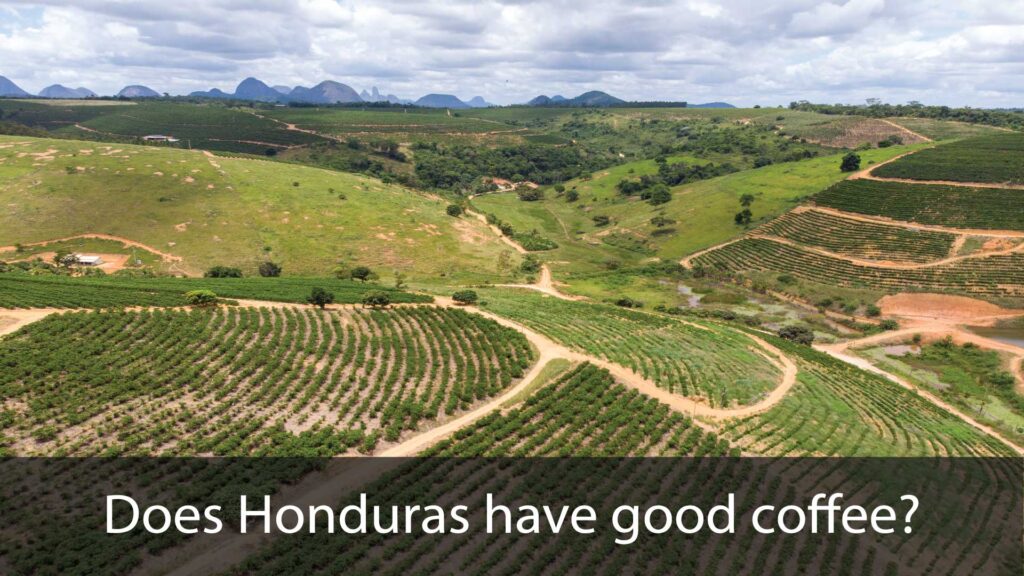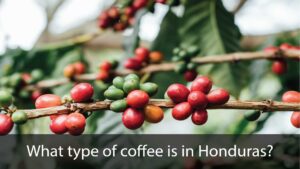Does Honduras have good coffee?
This is a question that has been asked by many coffee lovers and enthusiasts. Honduras is a country located in Central America and is known for its coffee production. It is one of the top coffee-producing countries in the world. But is the coffee from Honduras that good? In this article, we will explore the world of Honduran coffee and find out if it lives up to its reputation.
The History of Honduran Coffee
The history of Honduran coffee is rich and fascinating, dating back to the 18th century when the first coffee plants were introduced to the country. However, it wasn’t until the 20th century that the coffee industry took off and became a major player in the country’s economy.
The first coffee plantations were established in the western part of the country, and it didn’t take long for the industry to spread to other regions. Farmers were quick to realize the potential of coffee as a cash crop and began to plant more and more coffee trees. As the industry grew, so did the infrastructure needed to support it, with processing plants and export facilities springing up across the country.
Today, Honduras is the largest coffee producer in Central America and the fifth-largest coffee producer in the world. The coffee industry is a crucial part of the country’s economy, employing thousands of people and contributing significantly to the nation’s GDP.
Over the years, Honduran coffee has earned a reputation for its unique and delicious flavor. The high-altitude regions in which the coffee is grown give it a distinctive taste that sets it apart from coffee grown in other parts of the world. This has helped to cement Honduras’ place as a major player in the global coffee industry, with demand for Honduran coffee beans remaining consistently high.
Despite facing challenges such as climate change, volatile market prices, and competition from other coffee-producing nations, the coffee industry in Honduras continues to thrive. This is a testament to the hard work and dedication of the country’s coffee farmers, who have worked tirelessly to produce some of the world’s finest coffee beans.
The history of Honduran coffee is one of growth, innovation, and hard work. From humble beginnings in the 18th century to becoming a major player in the global coffee industry, the coffee industry in Honduras has come a long way. Today, it is a crucial part of the country’s economy and continues to produce some of the world’s best coffee beans.
The Characteristics of Honduran Coffee
When it comes to Honduran coffee, there are a few characteristics that set it apart from other coffees around the world. One of the most notable features of Honduran coffee is its mild flavor, which makes it an ideal choice for those who prefer a less intense coffee experience. This mildness is balanced out by the coffee’s bright acidity, which gives it a tangy, refreshing quality that is sure to wake up your taste buds.
One of the things that makes Honduran coffee so special is the altitude at which it is grown. Coffee plants thrive in high-altitude regions, and the coffee grown in Honduras is no exception. The cool, mountainous climate of the country’s coffee-growing regions helps to slow down the growth of the coffee plants, resulting in a denser, more flavorful coffee bean.
When it comes to roasting Honduran coffee, most roasters prefer to take it to a medium-dark level. This allows the natural flavors of the coffee to shine through, while also bringing out notes of chocolate and caramel. The result is a rich, full-bodied coffee with a smooth, clean finish that is sure to leave you feeling satisfied.
In addition to its delicious taste, Honduran coffee is also known for its sustainability. Many of the coffee farmers in Honduras have embraced sustainable farming practices, such as using organic fertilizers and practicing soil conservation. This not only helps to preserve the environment but also ensures the long-term viability of the coffee industry in Honduras.
Honduran coffee is a delicious and unique coffee that is sure to please even the most discerning coffee connoisseur. With its mild flavor, bright acidity, and smooth finish, it is a popular choice among coffee lovers around the world. And with its commitment to sustainability, the Honduran coffee industry is poised to continue thriving for years to come.
The Best Regions for Honduran Coffee
Honduras is home to several regions that produce some of the world’s best coffee beans. Each of these regions has its unique characteristics and flavor profiles, making Honduran coffee a truly diverse and exciting experience for coffee lovers.
One of the most famous regions for Honduran coffee is Copan, located in the western part of the country. Coffee from Copan is known for its fruity and floral flavors, with notes of apricot, peach, and jasmine. These delicate flavors are the result of the high-altitude climate and the unique soil composition of the region. Many coffee experts consider Copan coffee to be among the best in the world, making it a must-try for coffee enthusiasts.
Another region that produces high-quality coffee beans in Honduras is Santa Barbara. The coffee from Santa Barbara is known for its bright acidity, with notes of green apple and lemon. This coffee is grown at high elevations, which helps to slow down the growth of the coffee plants and intensify the flavors of the beans. The result is a complex, vibrant coffee that is sure to impress.
Ocotepeque is another region in Honduras that is known for its excellent coffee. The coffee from this region is characterized by its rich, full-bodied flavor, with notes of chocolate and nutmeg. This coffee is grown in the foothills of the Celaque Mountains, which gives it a unique terroir that sets it apart from other Honduran coffees.
Finally, Comayagua is a region in Honduras that is known for its smooth and balanced coffee. The coffee from this region has a mellow, chocolatey flavor with hints of brown sugar and nuts. This coffee is grown at lower elevations than some of the other regions, which gives it a different flavor profile but is still highly sought after by coffee enthusiasts.
Honduras is a country that produces some of the world’s best coffee beans, with each region offering its unique flavor profile. Whether you’re a fan of fruity and floral notes or prefer a rich, chocolatey coffee, there is a Honduran coffee for you to try. Copan, Santa Barbara, Ocotepeque, and Comayagua are just a few of the regions that produce high-quality coffee beans, so be sure to explore them all to discover the full range of flavors that Honduran coffee has to offer.
The Importance of Sustainable Coffee Production
In recent years, the importance of sustainable coffee production has become increasingly clear. Coffee is an agricultural product, and like any crop, it can have a significant impact on the environment if not grown and harvested responsibly. Honduras is one country that has recognized the importance of sustainable coffee production and has taken significant steps to promote it.
One of the ways that Honduras promotes sustainable coffee production is through the implementation of programs that encourage soil conservation. Healthy soil is critical for growing healthy coffee plants, and by using methods such as crop rotation, cover cropping, and composting, Honduran coffee farmers can maintain healthy soil while reducing the need for synthetic fertilizers.
Another key aspect of sustainable coffee production is water management. Coffee plants require a significant amount of water, and in some regions of Honduras, water is a scarce resource. By implementing practices such as drip irrigation and rainwater harvesting, Honduran coffee farmers can reduce water waste and ensure that their coffee plants receive the water they need to grow.
Honduras also promotes the use of organic fertilizers, which are made from natural materials such as compost and manure. These fertilizers are safer for the environment and for the farmers who use them, as they do not contain harmful chemicals that can leach into the soil and water supply.
Overall, sustainable coffee production is critical for ensuring the long-term viability of the coffee industry in Honduras. By implementing practices that promote healthy soil, efficient water use, and the use of organic fertilizers, Honduran coffee farmers can maintain a healthy environment while producing high-quality coffee beans.
The importance of sustainable coffee production cannot be overstated. Honduras has recognized this and has taken significant steps to promote sustainable farming practices in the country’s coffee industry. By doing so, they are not only preserving the environment but also ensuring the long-term viability of the coffee industry. We should all support sustainable coffee production and encourage other countries to follow Honduras’ lead.
The Future of Honduran Coffee
The future of Honduran coffee is bright, with the industry expected to continue to grow and thrive in the coming years. Honduras has made significant investments in new technologies and infrastructure to improve the quality of its coffee beans, and these efforts are already paying off.
One of the key trends driving the growth of the coffee industry in Honduras is the increasing demand for specialty coffee. Specialty coffee is a high-quality coffee that is produced in small batches and often has unique flavor profiles. As more and more people become interested in exploring the world of specialty coffee, there is a growing demand for high-quality coffee beans that can deliver the unique flavor and aroma profiles that coffee enthusiasts are looking for.
Honduras is well-positioned to meet this demand, thanks to the country’s unique climate and growing conditions. The high-altitude regions in which Honduran coffee is grown give it a distinctive flavor profile that is difficult to replicate elsewhere. As more and more people become aware of the unique characteristics of Honduran coffee, demand for this coffee will likely continue to increase.
In addition to the growing demand for specialty coffee, other factors bode well for the future of the coffee industry in Honduras. The country has a strong tradition of coffee production, and the government is committed to supporting and promoting the industry. This support has helped to attract investment and encourage innovation in the sector, which will be crucial for the industry’s continued growth and success.
The future of Honduran coffee is bright, with the industry expected to continue to grow and thrive in the coming years. With a growing interest in specialty coffee and a commitment to innovation and sustainability, Honduras is well-positioned to meet the demands of coffee lovers around the world. As the coffee industry continues to evolve, we can expect to see even more exciting developments coming out of Honduras in the years to come.
When it comes to coffee, few countries can match the quality and diversity of Honduras. The country’s coffee is known for its mild flavor, bright acidity, and smooth finish, making it a popular choice among coffee lovers around the world.
One of the things that makes Honduran coffee so special is the altitude at which it is grown. The coffee plants thrive in high-altitude regions, resulting in a unique flavor profile that sets it apart from coffee grown in other parts of the world.
Honduras is home to several regions that produce some of the world’s best coffee beans, including Copan, Santa Barbara, Ocotepeque, and Comayagua. Each of these regions has its own unique characteristics and flavor profiles, making Honduran coffee a truly diverse and exciting experience for coffee enthusiasts.
In addition to producing high-quality coffee, Honduras has also made significant strides in promoting sustainable coffee production. By implementing practices such as soil conservation, water management, and the use of organic fertilizers, the country is ensuring the long-term viability of the coffee industry while preserving the environment.
As the world becomes more aware of the unique characteristics of Honduran coffee, demand for this coffee will likely continue to increase. With its commitment to sustainability and innovation, Honduras is well-positioned to meet the growing demands of coffee lovers around the world.
In conclusion, the answer is a resounding yes – Honduras does indeed have good coffee. Its mild flavor, bright acidity, and smooth finish, combined with the unique growing conditions and sustainable farming practices, make it a standout in the global coffee industry. Whether you’re a coffee connoisseur or just a casual coffee drinker, Honduran coffee is a must-try for anyone looking to explore the world of specialty coffee.




